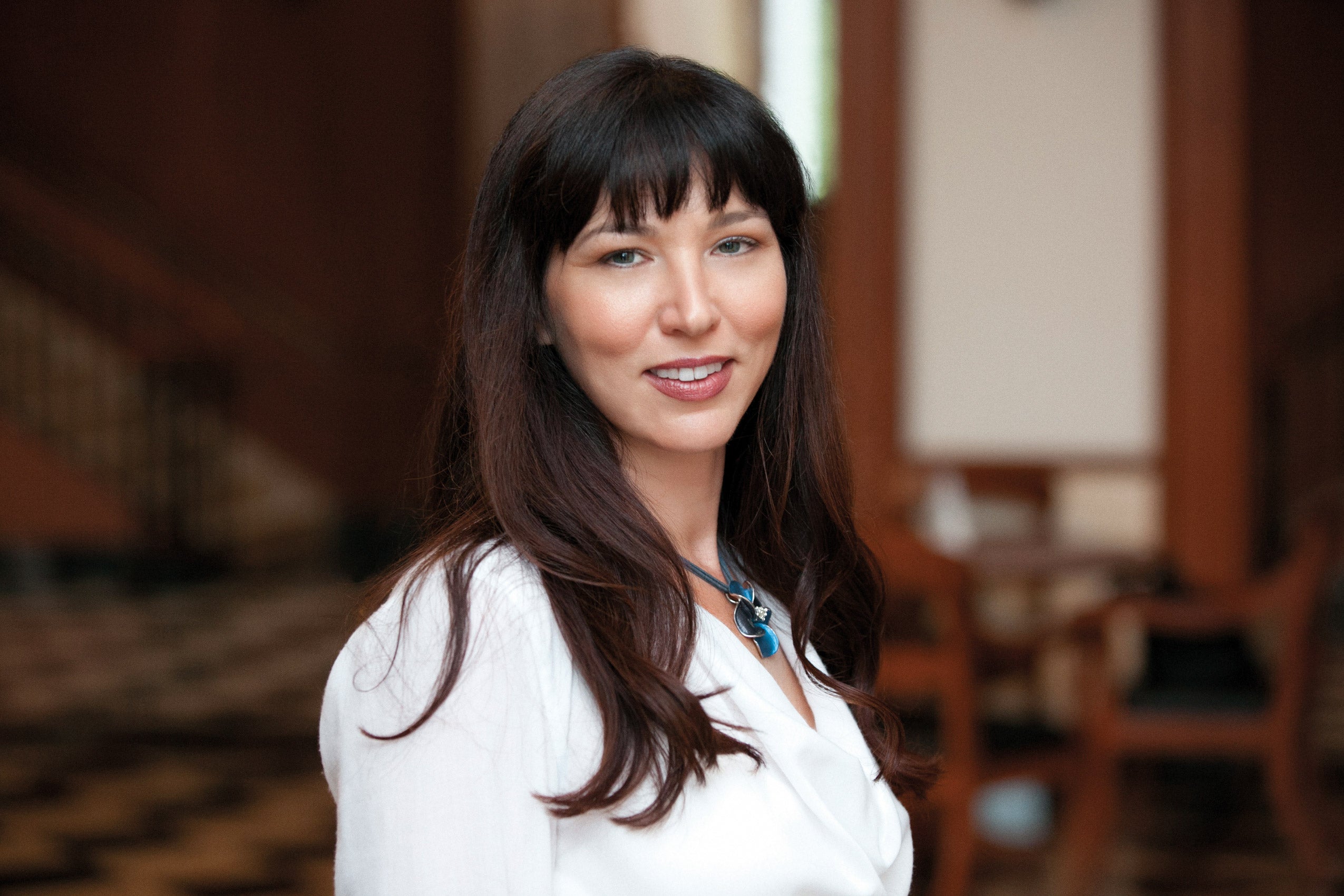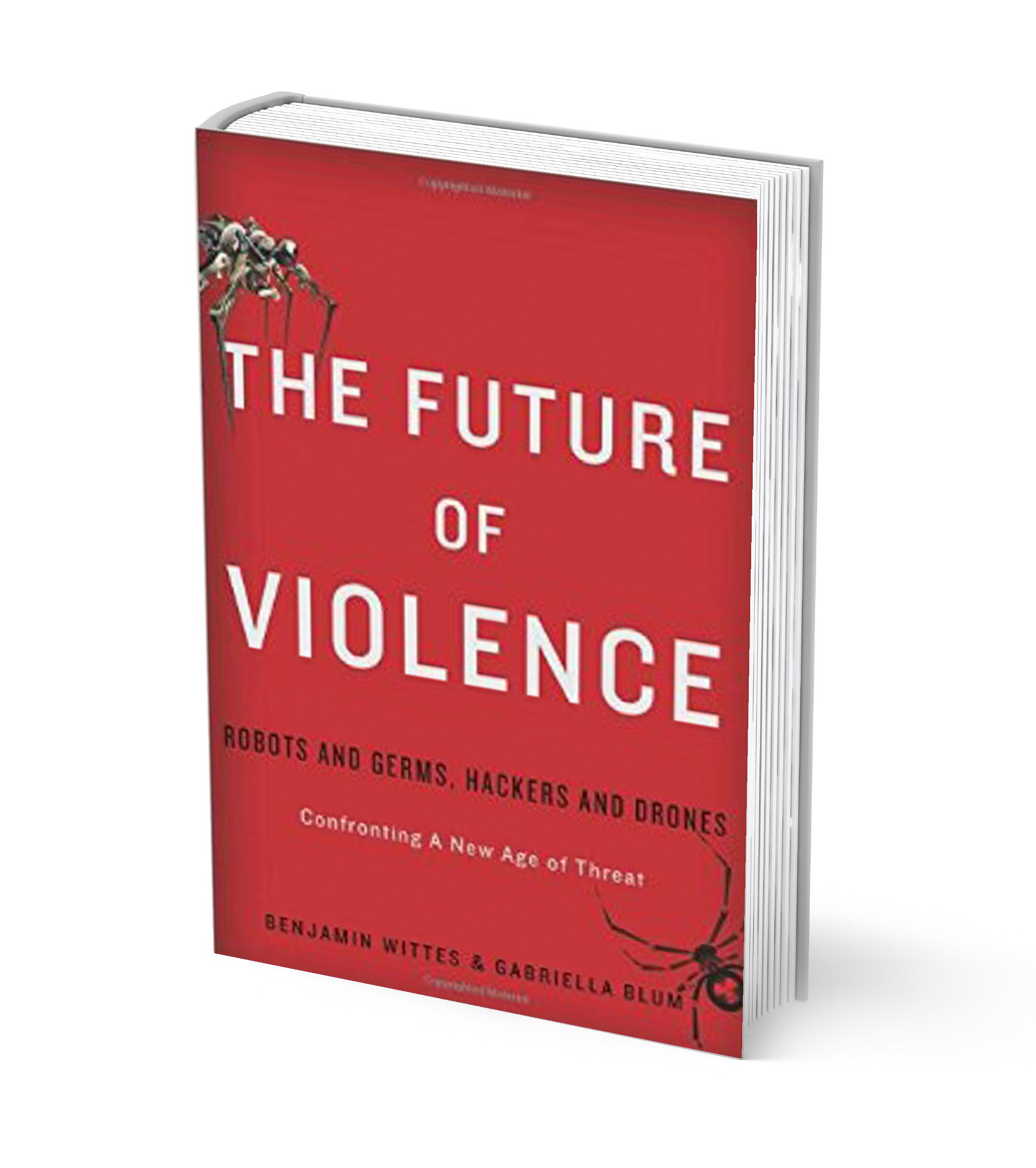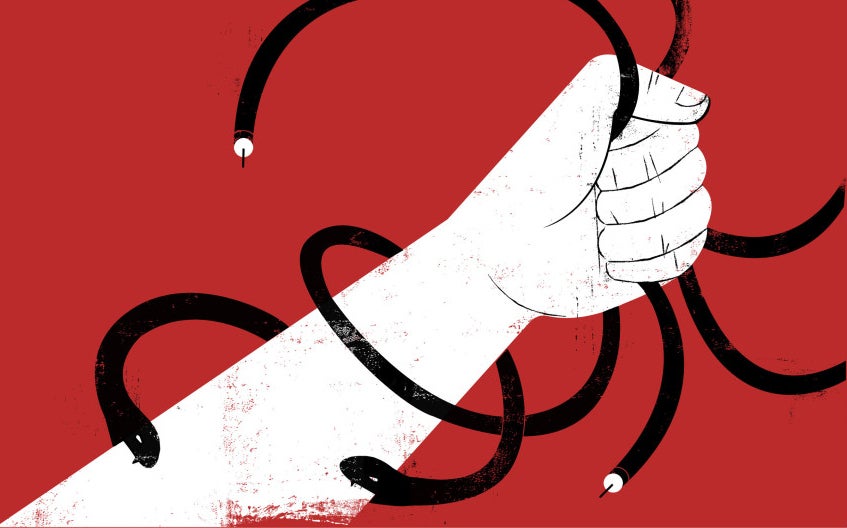During a conversation about her new book, Gabriella Blum LL.M. ’01 S.J.D. ’03 jokes that she has become paranoid. Then again, it’s not paranoia if you truly have something to fear. And the book “The Future of Violence: Robots and Germs, Hackers and Drones—Confronting a New Age of Threat” covers lots of things to be scared of—as well as ways to make us safer even when danger can come from everywhere and everybody.
Gabriella Blum and Benjamin Wittes reject the idea that we must give up liberty for the sake of security.
Blum, the Rita E. Hauser Professor of Human Rights and Humanitarian Law at HLS, and co-author Benjamin Wittes, a senior fellow in governance studies at the Brookings Institution, focus on a new world of technology that fundamentally changes long-established conceptions of security. Whereas in the past, government was primarily responsible for security, individuals are now more empowered and more vulnerable than ever before. Indeed, new technologies have allowed individuals and small groups to challenge states, they write. For example, networked computers could facilitate an attack on the financial system or the electric grid; deadly pathogens have become more widely available, as seen in the anthrax attacks in October 2001; and 3-D printing allows civilians to create their own weapons. Furthermore, technologies tend to allow attacks from greater distances and with a greater chance for anonymity.

As a corollary, distance does not protect people from harm. The ubiquity of the Internet, along with the fact that our digital information is being stored out of our hands, has increased the number of ways people can be attacked, they write. As technology advances, our vulnerability will increase. For example, should driverless cars one day take over our roads, the systems that control them could be tampered with to cause mass traffic accidents. To face these threats, the private sector will play a greater role than ever, they contend, ranging from cybersecurity initiatives to innovations such as one from a company that uses audio sensors to identify when a gunshot has been fired.
“The point is that in the future world, you are a key to security, you are a key to defense, you are a key to threats, and each and every one of us is naked, vulnerable, menacing, and essential,” says Blum.

The authors reject the notion that, in this new age of threat, one must give up liberty for the sake of security. After all, they note, the least free countries are not the most secure. In addition, while concerns about invasion of privacy are often raised when it comes to security issues, they write that “the concept of privacy badly describes the value we wish to protect in a culture in which we routinely conduct transactions using, as currency, data about ourselves.” They cite instances in which people gratefully cede privacy in order to feel more secure, such as when a credit card company monitors customers’ transactions in order to discover fraud.
This is surveillance, whether we commonly call it that or not, as is screening done in airports, says Blum. And the authors advocate for more of it as long as checks and balances are in place, such as ensuring that it is nondiscriminatory. In an age of “many-to-many threats,” we need to protect ourselves from more than just the specter of an all-seeing Big Brother government, Blum says: “I’m actually comfortable with [surveillance] within bounds if it protects me from lots of Little Brothers with far less accountability than democratic government has.”
As a native of Israel who advised the Israel Defense Forces and Israeli National Security Council, Blum says that her background taught her that national security affects people’s everyday lives. Unlike in the United States, in Israel, the country’s border didn’t provide an effective line of defense. In many ways, that is now the reality under which all nations must operate. Since many threats are transnational, more states will create laws and carry out unilateral actions that will cross their borders, including more targeted killings, she says. To prevent a worldwide “Wild West,” she advocates for more international cooperation, including the possibility of a multinational police force. More than ever, the instability of one country threatens not only its own citizens but also other nations, she says.
Before the book was published, students mulled its topics in a workshop Blum co-taught with HLS Professor Jack Goldsmith called National and International Security Law: New Threats. As the students embark on their careers, it’s not a question of if they will deal with these threats, she says, but how: “I can’t think of a place where these questions aren’t relevant today.”
